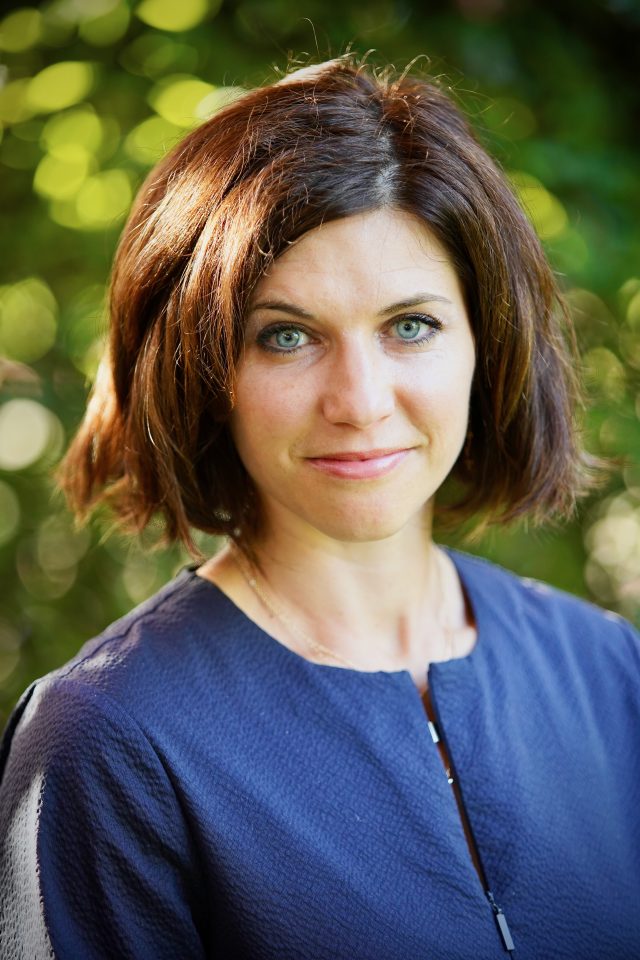
We are pleased to announce that OSOT Assistant Professor Dr. Julia Schmidt received a three-year SSHRC Partnership Engage Grant for a project titled “Developing peer-support programs across British Columbia for people with brain injury.”
The goal of this project is to implement peer-support programs for people living with traumatic brain injury (TBI) at six centres across British Columbia and to evaluate their impact. Peer-support programs have been shown to have positive impacts on people living with conditions such as stroke and spinal cord injury, but they have not been widely studied among people with TBI.
We recently sat down with Dr. Schmidt to discuss this project and its potential impact.
People might be curious to learn more about peer support. What is it, and how can it help people living with traumatic brain injury (TBI)?
Peer support is an approach to rehabilitation in which a person who has long-term experience living with a condition provides mentorship and guidance to somebody who has less experience with it. For TBI, people with longer experience living with a TBI connect with people who have recently sustained a TBI to share experiences, encourage rebuilding a sense of self, and discuss other topics specific to each individual’s situation.
Traditional approaches to rehabilitation following TBI aim to lessen disability, targeting motor skills and functioning memory, with the aim of helping people recover or rehabilitate. While traditional approaches are helpful to reduce impairment, people with TBI also state that they need to connect with other people with TBI and understand what it means for their lives.
One of the biggest strengths of peer support for people living with TBI is that it is person-centred and aligned with people’s stated values and priorities.
It’s clear that patient-oriented research is a key priority to you. How will your community partners be involved in this project?
Community and patient partners are key in all our projects. For this particular project, the peer-support program was developed by the Nanaimo Brain Injury Society (NBIS), which has been running the program for over five years. The NBIA will collaborate with the BC Brain Injury Association (BC BIA), another organization with which I work closely, to facilitate the program’s expansion to six partner organizations across BC. They will play a leading role in this project, helping to implement the peer-support program, facilitate the collection and analysis of data on people’s experience of the program, and prove input on the dissemination of our results. Importantly, people with lived experience of TBI will both deliver the peer-support program and inform the project’s direction as members of the advisory board.
Once you have gathered the results of this phase, what will the next steps for this project be?
The goal of this phase of the research is to expand an existing peer-support program to six centres across BC, evaluate the program’s impact on people’s well-being and social participation, and investigate the experience of being part of the program. We hope to learn how to modify and adapt the program to different parts of the province (rural and urban areas) and how the program changes depending on people’s needs, background, and goals. We will share the findings with policymakers, researchers, community organizations, and people with TBI and their families. We also hope to learn about the sustainability of this program to support the widespread implementation of peer support for people with TBI.
What impact will this research have on people with TBI and on the health of Canadians more broadly?
This project will help people living with TBI build community and connections with people in similar situations, develop resiliency in navigating an uncertain future, and, ultimately, pursue meaningful and valued roles in their lives. One out of every two hundred Canadians sustains a TBI every year, making it one of the leading causes of disability in Canada, so this research is poised to impact a very large number of people. In addition, this project continues to push the paradigmatic shift toward working alongside people with lived experience as partners in research. Peer support can target aspects of life that people living with TBI have identified as a priority, including their sense of self, a sense of meaning and purpose, and sharing of experience. We aim to align with the principle of “nothing about us without us” advocated by people with disabilities.
We look forward to seeing the results of this work. Where can we learn more about your research?
You can always go to my research team’s website, where we post updates on ongoing projects, opportunities to participate in research, and more!